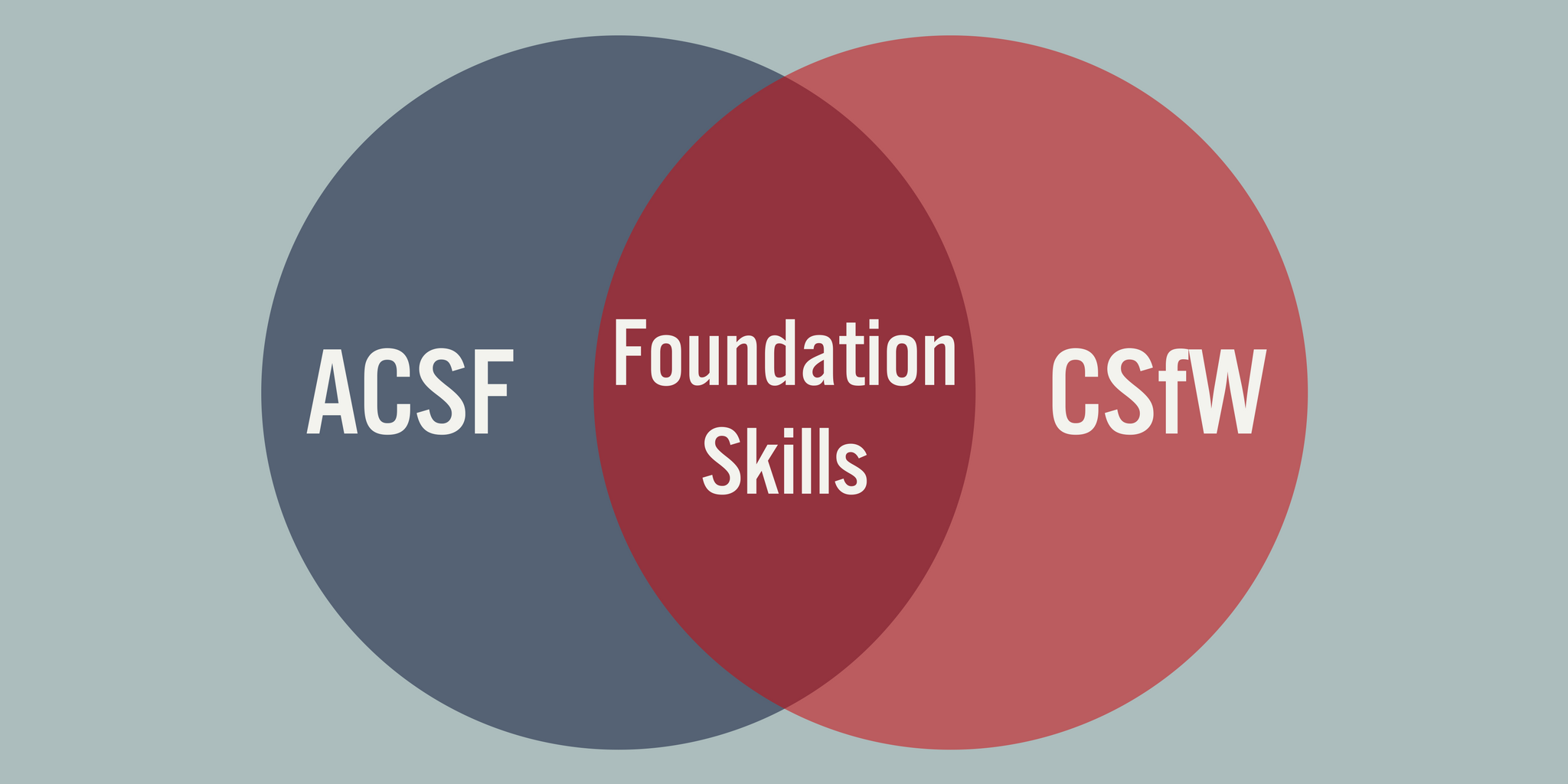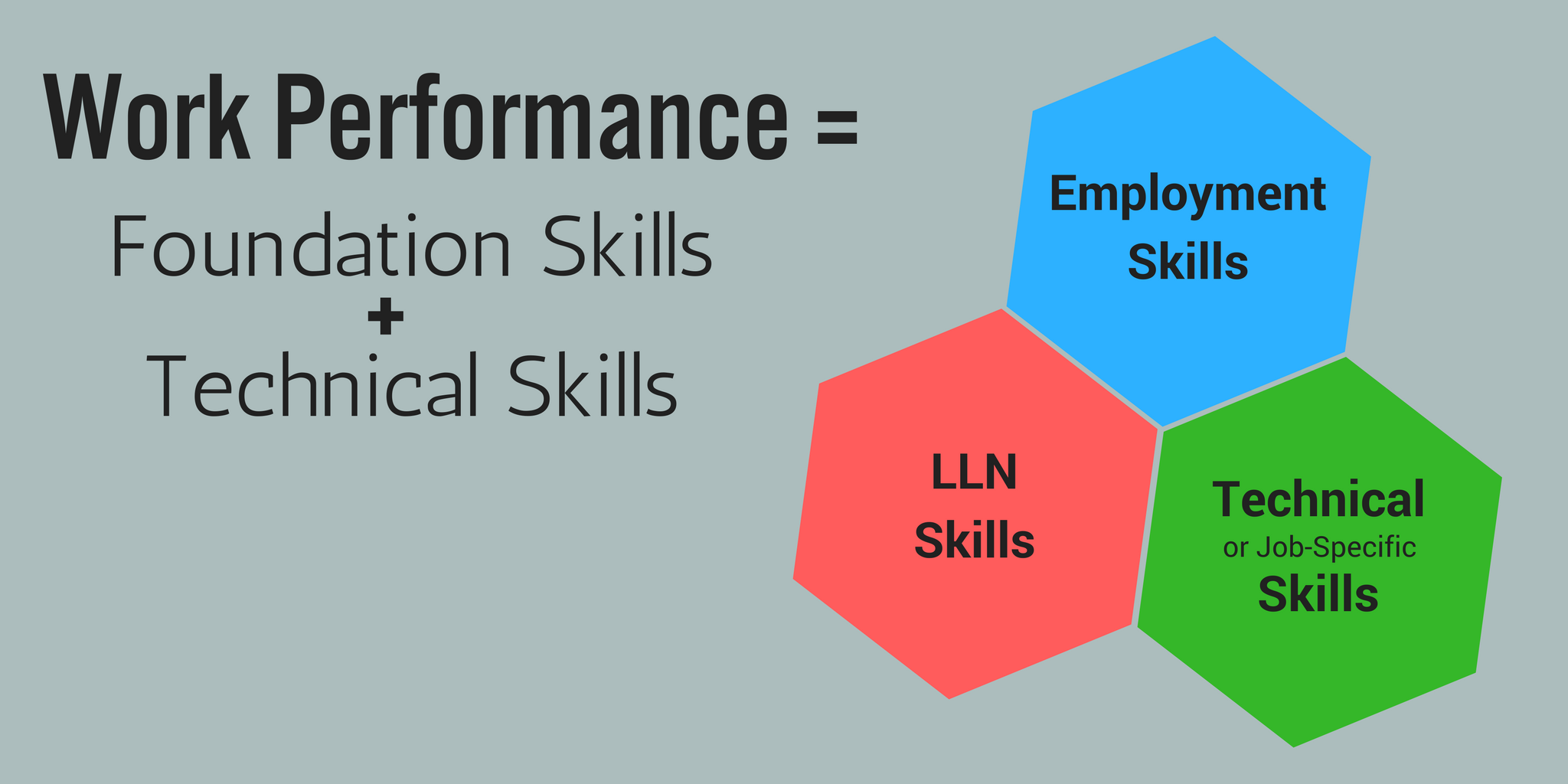Generative AI is transforming vocational training in Australia. Here are 8 practical ways to enhance training delivery, save time, and boost learner outcomes ethically.
News
Back to NewsFoundation Skills Explained

Foundation Skills is a term that is becoming more and more prevalent in the VET sector. Unfortunately there is some confusion about how these fit into the world of vocational education and training. Hopefully this article will shed some light on the subject for those of you who aren’t exactly sure what the term means.
What are Foundation Skills?
Foundation Skills is the term given to a broad range of skills that come from 2 major frameworks:
- Australian Core Skills Framework (ACSF).
- Core Skills for Work (CSfW).
Essentially these frameworks describe a range of skills that are used day to day in the work and personal life of the modern Australian.

What is the ACSF?
The Australian Core Skills Framework is a benchmarking tool that identifies 5 core skills across 5 levels of proficiency. Generally speaking, the ACSF is concerned with Language, Literacy, Numeracy and Learning.
The ACSF considers a person to be competent in English Language, Literacy & Numeracy if they are consistently demonstrating the skills associated with Level 3. This will be the topic of the next article in the series.
This shouldn’t be confused with AQF/Certificate 3. For more information on how the ACSF and the AQF line up you can read this article.
For more information on the ACSF you can visit the website.
What are CSfW?
Core Skills for Work is the name given to a range of skills that allow a person to be an effective contributor in the workplace. The core skills are divided up into 3 main clusters:- Navigating the world of work.
- Interacting with others.
- Getting the work done.
The CSfW is very similar to what was previously known as Employability Skills. You can read more about the CSfW here.
How does this all fit into the VET sector?
The aim of the VET sector is to prepare individuals to be job ready, having gained practical experience and contextualised knowledge relevant to a specific job role. This outcome is the combination of Foundation Skills (ACSF/LLN and CSfW/Employment Skills) and Technical Job-Specific Skills (Units of Competency).

By ensuring that a learner has developed the necessary foundation and technical skills during the training process the end product is a person who is able to take on responsibilities effectively in the workforce, and wider community.
It is generally agreed that it was the motivation to achieve this level of work performance that enacted the development of both the ACSF and the CSfW. It is also the reason that we find Foundation Skills listed in, or mapped to newer units of competency.
This is the first in a series of articles that will be published over the next few weeks leading up to a presentation on this topic being delivered (by yours truly) at the National VET Conference 2017 in Sydney. This series aims to explore what foundation skills are, how to determine a learner’s needs for developing foundation skills and how to go about supporting them throughout the learning experience.
ABOUT THE AUTHOR
David Cunning

David Cunning is the General Manager of The Learning Resources Group. He has been in the VET sector for 12 years and has spent the best part of the last decade managing the creation of training and assessment resources for over 300 units of competency. He was the driving force behind the LLN Robot System of assessing and supporting vocational education students across the country.
Dave has invested himself in understanding the industry by attaining his Certificate IV in Training and Assessment and also a Diploma of Vocational Education and Training and a Diploma in Training Design and Development.
Prior to working in the VET sector, Dave was a psychology graduate and a graphic artist who ran his own independent publishing house.
Outside of TLRG office, Dave was voted the world's greatest dad by a 2/3 majority of his 3 sons. He is an amateur e-sports participator, avid motorcycle accumulator and aspires to be the single largest consumer of 2-minute noodles in the southern hemisphere.